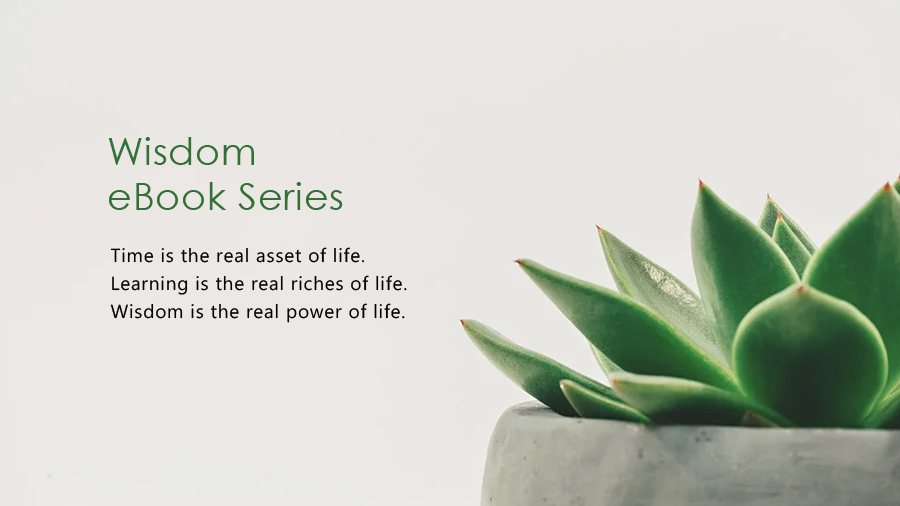-
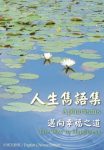 Aphorisms The Way to Happiness
Aphorisms The Way to HappinessWords of Wisdom. The volume is small and thin, but amazingly its contents are profound statements made by sages of antiquity and modern times concerning how to deal with life’s problems. It is quite an inspiring book.
-
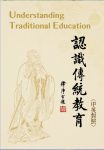 Understanding Traditional Education
Understanding Traditional EducationThis book was respectfully prepared from Venerable Master Chin Kung’s Understanding Traditional Chinese Culture keynote speech and made into a book for publication and circulation
-
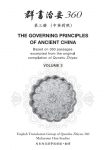 The Governing Principles of Ancient China – Qunshu Zhiyao 360 (Volume 3) Chinese – English
The Governing Principles of Ancient China – Qunshu Zhiyao 360 (Volume 3) Chinese – EnglishThe Governing Principles of Ancient China Volume 3—Based on 360 passages excerpted from the original compilation of Qunshu Zhiyao (Compilation of Books and Writings on the Important Governing Principles).
-
 The Epochal Significance of Religious Sacred Texts 360 – Zoroastrianism 360
The Epochal Significance of Religious Sacred Texts 360 – Zoroastrianism 360The most important Zoroastrian Scripture are the Hymns composed by the Prophet known as the Gathas, meaning songs. They are in an ancient Iranian language known as Avesta.The three basic tenets of the Faith are Humata meaning Good Thoughts, Hukhata meaning Good Words, and Hvaresta meaning Good Deeds.
-
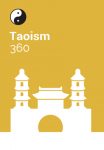 The Epochal Significance of Religious Sacred Texts 360 – Taoism 360
The Epochal Significance of Religious Sacred Texts 360 – Taoism 360The Book of Laozi; The Book of Zhuangzi; The book of Lieh Tzu; The Scripture of Peace and Tranquillity; Treatise of the Supreme Venerable on Response and Retribution.
-
 The Epochal Significance of Religious Sacred Texts 360 – Sikh Faith 360
The Epochal Significance of Religious Sacred Texts 360 – Sikh Faith 360The Sikh faith was established by ten Spiritual Masters called Gurus over a period of some 240 years from 1469 to 1708.
-
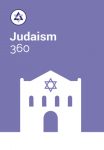 The Epochal Significance of Religious Sacred Texts 360 – Judaism 360
The Epochal Significance of Religious Sacred Texts 360 – Judaism 360Judaism is the oldest monotheistic religion. Its foundation lies in the original covenant made between Abraham and God, c1900 BCE
-
 The Epochal Significance of Religious Sacred Texts 360 – Jainism 360
The Epochal Significance of Religious Sacred Texts 360 – Jainism 360The main principles of Jainism are Ahimsa (non-violence), Anekantvad (multiplicity) of views, and Aparigraha (non-possessiveness).Jains believed every soul is capable of achieving moksha.
-
 The Epochal Significance of Religious Sacred Texts 360 – Islam 360
The Epochal Significance of Religious Sacred Texts 360 – Islam 360Islam comprises of four elements; principles, moral values, laws and traditions. These are the essential elements that form the religious life of any Muslim community.
-
 The Epochal Significance of Religious Sacred Texts 360 – Hinduism 360
The Epochal Significance of Religious Sacred Texts 360 – Hinduism 360Hinduism believe in Karma, Samsara and Moksha. • Karma, the moral law of cause and effect, relates to reincarnation, notions of free will and destiny.
-
 The Epochal Significance of Religious Sacred Texts 360 – Christianity 360
The Epochal Significance of Religious Sacred Texts 360 – Christianity 360Christianity is the world’s largest religion, taking many different forms. An ‘Abrahamic’ faith, which grew out of Judaism, it shares the longing for, and active commitment to, God’s ‘kingdom’ of ‘shalom’ (love, peace and justice for all).
-
 The Epochal Significance of Religious Sacred Texts 360 – Buddhism 360
The Epochal Significance of Religious Sacred Texts 360 – Buddhism 360The Buddha taught and transformed people with his compassion and wisdom, which could also be seen in the way he treated followers of other religions.
-
 The Epochal Significance of Religious Sacred Texts 360 – Baháí Faith 360
The Epochal Significance of Religious Sacred Texts 360 – Baháí Faith 360Bahá’u’lláh is the most recent in a line of divine Messengers including Abraham, Krishna, Zoroaster, Moses, Buddha, Jesus, Muhammad and the Báb.
-
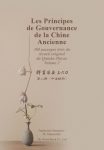 The Governing Principles of Ancient China – Qunshu Zhiyao 360 (Volume 2) Chinese – French
The Governing Principles of Ancient China – Qunshu Zhiyao 360 (Volume 2) Chinese – FrenchLe Qunshu Zhiyao est une compilation de conseils, deméthodes, et de notes historiques retraçant les succès etles échecs des gouvernements impériaux de la Chine.
-
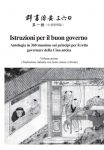 The Governing Principles of Ancient China – Qunshu Zhiyao 360 (Volume 1) Chinese – Italy
The Governing Principles of Ancient China – Qunshu Zhiyao 360 (Volume 1) Chinese – ItalyIl Qunshu Zhiyao, ovvero “Istruzioni per il buon governo”, è una raccolta antologica che contiene esortazioni, spiegazioni storiche, metodi pratici legati al sapere e alla saggezza del governare della Cina antica, e racchiude, attraverso
-
 The Governing Principles of Ancient China – Qunshu Zhiyao 360 (Volume 1) Chinese – Vietnam
The Governing Principles of Ancient China – Qunshu Zhiyao 360 (Volume 1) Chinese – Vietnam“Quần Thư Trị Yếu” là sự kết tập trí tuệ, phương pháp, kinh nghiệm và hiệu quả trong việc tu thân tề gia trị quốc bình thiên hạ của cổ thánh tiên vương.
-
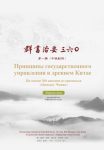 The Governing Principles of Ancient China – Qunshu Zhiyao 360 (Volume 1) Chinese – Russia
The Governing Principles of Ancient China – Qunshu Zhiyao 360 (Volume 1) Chinese – Russia«Цюньшу Чжияо» - это собрание книг и сочинений, посвященное идее, методам, опытам и эффекту самосовершенствования, учреждения хорошего порядка в своей семье,
-
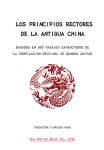 The Governing Principles of Ancient China – Qunshu Zhiyao 360 (Volume 1) Chinese – Spain
The Governing Principles of Ancient China – Qunshu Zhiyao 360 (Volume 1) Chinese – SpainA principios de la Era de Zhenguan, el emperador Taizong (599–649), de la dinastía Tang, decretó que Qunshu Zhiyao (La Recopilación de los Libros y Escrituras sobre los Principios de Gobierno) fuera recopilado.
-
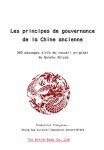 The Governing Principles of Ancient China – Qunshu Zhiyao 360 (Volume 1) Chinese – French
The Governing Principles of Ancient China – Qunshu Zhiyao 360 (Volume 1) Chinese – FrenchAu début de l’ère Zhengguan, l’empereur Taizong (599- 649) de la dynastie Tang ordonna la compilation du Qunshu Zhiyao ( composé d’extraits de livres et d’écrits sur des principes essentiels de gouvernance ).
-
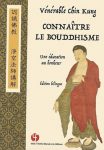 Connaître le bouddhisme (Recognizing Buddhism / Chinese – French)
Connaître le bouddhisme (Recognizing Buddhism / Chinese – French)TRES CHERS PRATIQUANTS : avant de nous appliquer à l’étude de la Loi du Bouddha, nous devons en avoir une compréhension correcte ; car sinon, même en y passant beaucoup de temps, nous n’obtiendrons pas les résultats attendus et cela serait fort dommage.
-
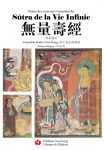 Notes de cours sur l’essentiel du Sûtra de la Vie Infinie (Chinese – French)
Notes de cours sur l’essentiel du Sûtra de la Vie Infinie (Chinese – French) En août 1993, le Vénérable Maître Chin Kung (Jing Kong 淨空) a donné 8 heures de cours sur l’essentiel du Sûtra de la Vie Infinie au Temple bouddhiste Ta Kioh (Da Jue 大覺) de San Francisco aux USA.
-
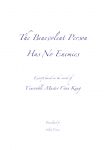 The Benevolent Person Has No Enemies
The Benevolent Person Has No EnemiesWe need to ignore and not respond to any slander and harm done to us because it is improper to respond. Only those who have done something wrong will feel guilty.
-
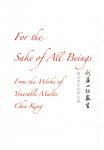 For The Sake of All Beings
For The Sake of All BeingsRare it is to be born as a human. Rare it is to be born when the Buddhadharma is known. Rare to have a wise Master to teach. Rare to have the good fortune to learn from the Master.
-
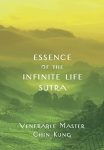 Essence of the Infinite Sutra
Essence of the Infinite SutraIn August 1993, Venerable Master Chin Kung gave an eight-hour lecture series titled Essence of the Infinite Life Sutra at Ta Kioh Buddhist Temple in San Francisco, USA.
-
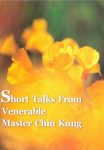 Short Talks From Venerable Master Chin Kung
Short Talks From Venerable Master Chin KungIn recent years, our world has become beset with calamities and our lives increasingly filled with suffering and unhappiness.
-
 The Art of Living: Houston & Dallas
The Art of Living: Houston & DallasBuddhism is an education about our living envi ronment and us. The Buddha teaches us to recog nize ourselves; our thoughts, speech, and actions and the consequences they evoke. M
-
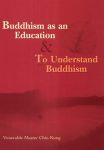 Buddhism as an Education & To Understand Buddhism
Buddhism as an Education & To Understand BuddhismBuddhism is Buddha Shakyamuni's educational system, which is similar to that of Confucius for both presented similar viewpoints and methods. The goal of Buddhist education is to attain wisdom. I
-
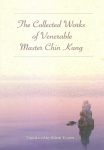 The Collected Works of Venerable Master Chin Kung
The Collected Works of Venerable Master Chin KungIn recent years, Master Chin Kung has emphasized The Infinite Life Sutra and the Pure Land cultivation method of Buddha Recitation. As he continues his lecturing tours around the world.
-
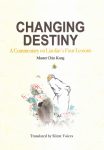 CHANGING DESTINY - A Commentary on Liaofans Four Lessons
CHANGING DESTINY - A Commentary on Liaofans Four LessonsLearning to re-create destiny has long been of in terest to those who believe that wealth or poverty, long life or short life—everything is destined
-
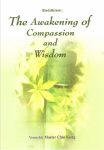 Buddhism: The Awakening of Compassion and Wisdom
Buddhism: The Awakening of Compassion and WisdomIt is necessary for us to a have correct under standing before practicing Buddhism: otherwise, all the time spent in cultivation will be futile, as the most superior result will not be attained.
-
 How to live without fear & worry
How to live without fear & worryWe pay the price of fear and worry to live the life of a human being. Our susceptibility to anxiety is the root cause of our problems.
-
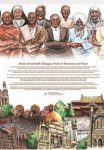 One Humanity, Many Faiths
One Humanity, Many Faiths“One Humanity, Many Faiths” will help foster the seeds for a harmonious world where all beings live together peacefully with one another and the environment.
-
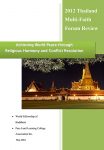 2012 Thailand Multi-Faith Forum Review (May 2012)
2012 Thailand Multi-Faith Forum Review (May 2012)The World Fellowship of Buddhists and the Pure Land Learning College Association Inc.co-hosted a multi-faith summit in Bangkok with the theme of “Achieving World Peace through Religious Harmony and Conflict Resolution.”
-
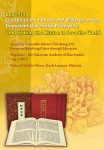 Learning Compilation of Books and Writings on the Important Governing Principles: Undertaking the Mission to Save the World
Learning Compilation of Books and Writings on the Important Governing Principles: Undertaking the Mission to Save the WorldThe only way to save the world is to return to the traditional teachings of the saints and sages.
-
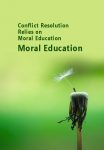 Education for Shared Values for Intercultural and Interfaith Understanding: Reflections and Proposals for Action
Education for Shared Values for Intercultural and Interfaith Understanding: Reflections and Proposals for ActionThe current times that we are living in are the times with unprecedented unrest, and with conflicts between nations, religions, and ethnic groups.
-
 Traditional Chinese Culture and a Harmonious Society – Education on Raising the Quality of Spirituality
Traditional Chinese Culture and a Harmonious Society – Education on Raising the Quality of SpiritualityEven though today our technology is advanced, at the same time, our society isfacing extreme poverty more so than ever before.There are two kinds of poverty.
-
 The Complete Library of the Four Branches of Literature
The Complete Library of the Four Branches of LiteratureThe purpose of compiling the Complete Library of the Four Branches of Literature during the QIng Dynasty was to collect all the different types of books from across the country.
-
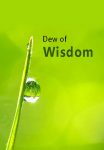 Dew of Wisdom Issue 1. Jan/2008
Dew of Wisdom Issue 1. Jan/2008Buddhism is an education, not a religion. We do not worship the Buddha, we respect him as a teacher. His teachings enable us to escape from suffering and attain happiness.
-
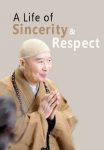 A Life of Sincerity and Respect
A Life of Sincerity and RespectToday, many people are searching for answers, for the understanding of why we are born, why we live and why we die.
-
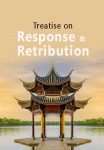 Treatise on Response and Retribution (1~11)
Treatise on Response and Retribution (1~11)The principles in the “Treatise on Response and Retribution” are very profound and the cases, examples and accounts on cause and effect extensive.Ancient people have given us much encouragement and utmost care.
-
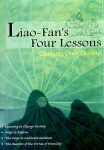 LiaoFan's Four Lessons - LiaoFan Yuan
LiaoFan's Four Lessons - LiaoFan Yuan"Creating Destiny" is about forming one's fate rather than being bound by it. The Lesson of Learning to Create Destiny herein discusses the principle behind fate and the knowledge necessary to change it. By relating his own experience and trials at changing destiny, Mr. Liao Fan Man taught his son.
-
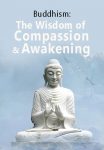 Buddhism: The Wisdom of Compassion And Awakening
Buddhism: The Wisdom of Compassion And AwakeningIt is necessary for us to a have correct understanding before practicing Buddhism; otherwise, all the time spent in cultivation will be futile, as the most superior result will not be attained.
-
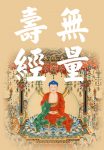 The Buddha Speaks of the Infinite Life Sutra of Adornment, Purity, Equality and Enlightenment of the Mahayana School
The Buddha Speaks of the Infinite Life Sutra of Adornment, Purity, Equality and Enlightenment of the Mahayana SchoolBuddha is a Sanskrit (Skrt) word meaning a perfect, enlightened being. He has gained complete awareness of the nature, phenomenon and function of the whole universe, in the past, present and future
-
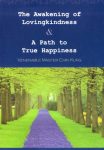 The Awakening of Lovingkindness & A Path to True Happiness
The Awakening of Lovingkindness & A Path to True HappinessAs long as our minds are virtuous and we have the minds of sincerity, purity, equality, proper under-standing and compassion; as long as our thoughts are virtuous and we cultivate good fortune for all beings.
-
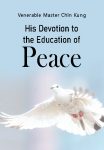 Venerable Master Chin Kung - His Devotion to the Education of Peace
Venerable Master Chin Kung - His Devotion to the Education of PeaceAll the sentient beings, including Buddhas, and people, have the same selfnature, and therefore have the capacity to be all knowing; have the same dharma body, and therefore have the potential to achieve the same perfectly virtuous appearance.
-
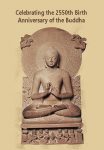 Celebration Of The 2550th Anniversary Of The Buddha
Celebration Of The 2550th Anniversary Of The BuddhaBuddha Shakyamuni’s devoted his whole life to the multicultural education, helping all living beings to break through delusion and achieve awakening, to rid sufferings and attain happiness.
-
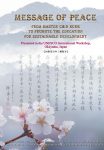 Message of Peace (English/Japan/chinese)
Message of Peace (English/Japan/chinese)We hope that all the different races and religions can treat one another equally and live in harmony, and that we hold the same ideals and understanding.
-
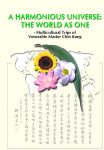 Harmonious Universe: The World As One Multicultural Trips of Venerable Master Chin Kung
Harmonious Universe: The World As One Multicultural Trips of Venerable Master Chin KungOur mind give rise to the whole universe, our body fills everywhere transcending space and time. Do what virtue and morality call for you to do, holding sincerity in yourmind and do away with all evil.
-
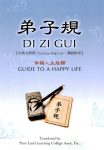 Di Zi Gui (Chinese - English) Guide To A Happy Life
Di Zi Gui (Chinese - English) Guide To A Happy LifeDi Zi Gui is the ultimate guide to a happy life. For thousands of years, this book contained the recommended standards for students. Even though they seem stringent by today’s standards.
-
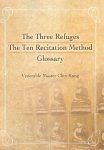 The Three Refuges / The Ten Recitation Method Glossary
The Three Refuges / The Ten Recitation Method Glossarywhich are the Buddha, the Dharma and the Sangha. I would like to clarify what taking refuge in the Triple Jewels means since there have been growing misunderstandings in modem times.
-
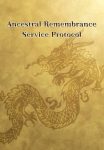 Ancestral Remembrance Service Protocol
Ancestral Remembrance Service ProtocolA. General Standards B. The Ancestral Remembrance Service Procedure C. Ancestral Remembrance Service - Glossary D. Usage of Ceremonial items E. Arranging the Memorial Tablets F. Layout of ceremonial items on the altar G. Musical Score and Photos
-
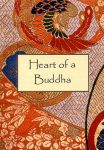 Heart of a Buddha
Heart of a BuddhaWe are what we think that we are arises with ourthoughts. With our thoughts, we make the world.
-
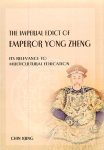 The Imperial Edict Of Emperor Yong Zheng
The Imperial Edict Of Emperor Yong ZhengI (Emperor Yong Zheng) think all the Three Teachings (Confucianism, Buddhism and Taoism) have the capacity to help people be enlightened in China because all Three Teachings derive from the same original source.
-
 Going Home to the Pure Land
Going Home to the Pure LandThus have I heard: Once Buddha was in the land of Shravasti, in the garden of Jeta and Anathapindika.
-
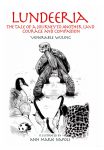 Lundeeria -- The Tale Of A Journey To Another Land Courage And Compassion
Lundeeria -- The Tale Of A Journey To Another Land Courage And CompassionOver the past few years, people in Pure Land societies have occasionally asked me if we had any children's books on beingvegetarian.
-
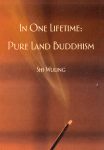 In One Lifetime:Pure Land Buddhism
In One Lifetime:Pure Land BuddhismOnce, the Buddha was asked if he was a god. The Buddha replied that no, he was not a god. Then was he an angel? No. A spirit? No. Then what was he? The Buddha replied that he was awakened.
-
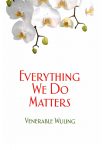 Everything We Do Matters
Everything We Do MattersIn the world today, we hear so much about con flict: Economic conflict between the developed countries and third-world countries.
-
 Awaken to the Buddha Within
Awaken to the Buddha WithinUnderstanding and practicing the teachings will enable us to find the answers to our questions and to learn how to lead more meaningful lives.
-
 path to peace
path to peaceUnderstand things as they really are. do not mistake the reflection of the moon in the water for the moon.
-
 How Will i Behave Today and the Rest of My Life?
How Will i Behave Today and the Rest of My Life?When we were babies, our parents gave up doing many of the things they enjoyed doing. Instead of going to bed when they wanted to and sleeping through the night they got up every few hours to take care of us.
ebooks
